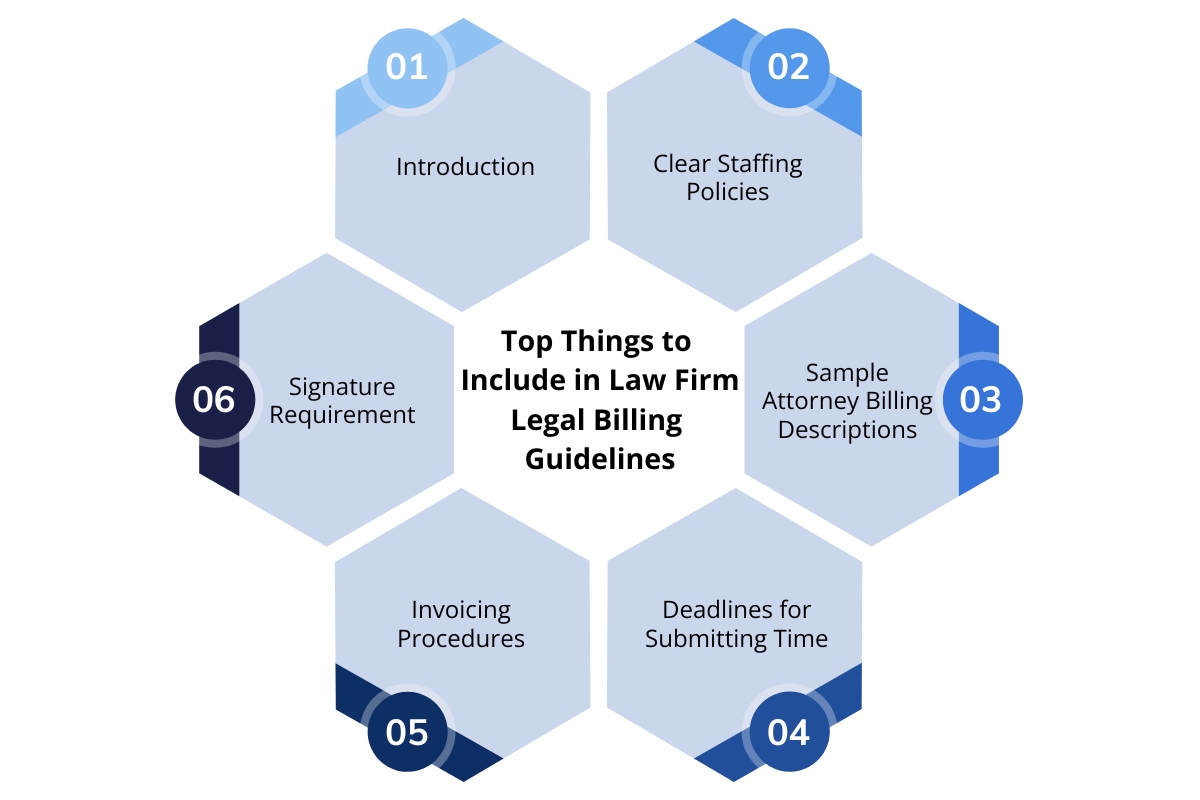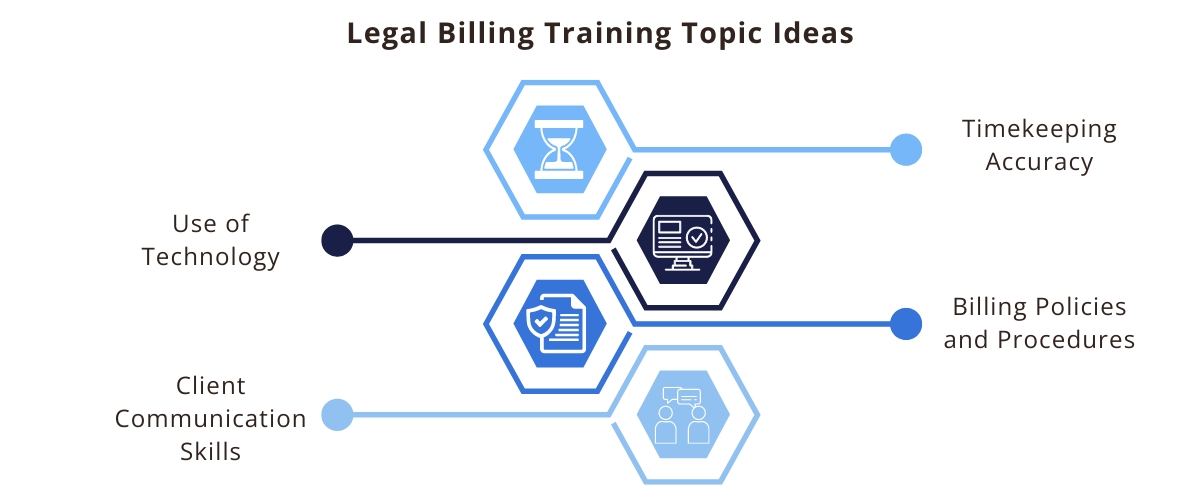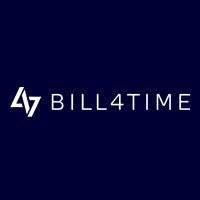If you ask any lawyer what their least favorite part of the job is, the number one answer will likely be “billing.” Law firm billing and invoicing is a constant source of frustration for many in the field. It’s labor-intensive and tedious, from timekeeping to billing cycle monitoring.
While it’s tempting to point fingers at clients for delayed payments, the root of the problem often lies in a law firm’s billing strategies. Using legal time tracking software will solve these issues, but there are a few additional secrets successful law firms employ to make billing less of a headache. If you’re experiencing a rise in late payments or extended billing cycles, try implementing these three strategies for a higher chance of law firm billing success.
1. Create Legal Billing Guidelines
One of the biggest problems in the law firm billing cycle is consistency across staff members. Consider creating legal billing guidelines or a legal billing handbook to give your staff a set of rules to follow when it comes to billing. Here are the basics of what your legal billing guidelines should include:

Introduction
Start with an introduction that explains the purpose of the guidelines and sets the tone. This section should highlight the benefits of adhering to proper billing practices and emphasize the commitment to transparency and fairness. Use the American Bar Association’s Model Rule 1.5 on Fees as a source of inspiration.
Clear Staffing Policies
Outline who is authorized to work on which cases and the expectations for the experience level necessary for various tasks. This section should also include rules for billing rates based on the staff’s roles and expertise.
Sample Attorney Billing Descriptions
Pick some tasks in your firm that everyone does more frequently, and include a list of sample billing descriptions for those tasks. Consider including “bad” legal billing examples and corresponding “good” examples. For instance, a bad example might be “Made initial pleadings,” whereas a good example might be “Prepared petition for divorce and summons according to details from initial client consultation.” Add some sample paralegal billing descriptions as well for your paralegal’s most common tasks.
Legal time tracking software makes this process much easier with multiple features that speed up time entry creation. With Bill4Time, for instance, you can speed through writing descriptions with auto-text. Auto-text allows you to write abbreviations for commonly used time entry descriptions (e.g., typing “RR,” which automatically changes to “research and review”).
Deadlines for Submitting Time
Specify the frequency of submitting time across the firm. At a bare minimum, your staff should submit their hours monthly, but many firms require weekly submissions. Weekly submissions may be superior, as it’s easier to remember everything you’ve done within a week as opposed to a month. If you use time tracking software, you can even make daily submissions because it’s so easy to record your time in real time as you do the work. This process ensures you capture every minute versus relying on your memory at the end of the week or month.
Invoicing Procedures
Make sure that anyone in your firm can easily answer the question, “How do I make an invoice for a law firm?” by defining the format and content of invoices. For example, if a specific format like LEDES is preferred, mention it explicitly. If you’re using legal time tracking software, provide step-by-step instructions for its use or a link to the software’s help center. Be sure to include how frequently clients should receive invoices — monthly invoicing is a good place to start.
Signature Requirement
Include a signature page to confirm that all parties have read, understood, and agreed to the guidelines. Requiring a signature helps in enforcing your policies and prevents future disputes.
2. Use Action Verbs for Legal Billing
The language you choose in your time entries plays an important role in whether or not clients pay your invoices. Using action verbs is an effective strategy, as these words bring clarity and assertiveness to your billing statements.
Why are action verbs effective? First, they convey a sense of urgency and importance. Words like “filed,” “researched,” or “drafted” emphasize the work done, making it tangible for the client. This clarity helps clients understand the value of the services provided, encouraging timely payment.
Second, action verbs enhance the professionalism of your billing statements. They reflect the precision and attention to detail that legal professionals apply in their work. For instance, saying “conducted an in-depth analysis of case law” versus “spent time looking at case law” provides a clearer, more professional depiction of the activity.
Some examples of action verbs that can enhance your billing descriptions include:
- Analyzed
- Drafted
- Negotiated
- Researched
- Reviewed
- Communicated
- Facilitated
- Advised
- Examined
- Developed
- Investigated
- Prepared
- Filed
- Attended
- Resolved
Incorporating these verbs into your billing can transform how clients perceive the invoice. Instead of seeing a list of hours spent, they see a list of actions taken on their behalf to accomplish their legal goals.
3. Conduct Regular Legal Billing Training
By facilitating regular legal billing training, there is a much higher chance that your firm will meet its billable hour requirements and that clients will pay invoices. This approach ensures that all team members are up-to-date on the best practices in legal billing.
How often you conduct this training is up to you. Quarterly training sessions are ideal, as this frequency allows for adjustments in response to regulatory changes, technological advancements, or internal policy updates. Additionally, every new employee should undergo this training as part of their onboarding process.
Here are a few examples of content to include in your quarterly training sessions:

- Timekeeping Accuracy: Training should cover how to categorize different tasks and the level of detail required in time entries. Consider highlighting some good examples of billing descriptions you’ve seen from bills that quarter.
- Use of Technology: Provide training on the latest billing software and tools. Perhaps focus on a specific feature in your legal time tracking software and how to use that feature more effectively. Your software may even have a library of training videos you can show during training, taking the burden of planning off your plate.
- Billing Policies and Procedures: Review the firm’s policies regarding billing cycles, rates, and client communication. If you’ve noticed that staff aren’t following a particular policy, bring attention to that policy and emphasize why it’s essential to the firm’s bottom line.
- Client Communication Skills: Train staff on effectively communicating billing matters with clients. Discuss how to address client queries and set client expectations for receiving and paying invoices. Ask your team about the biggest complaints they hear from clients about their bills and brainstorm ways to address these issues.



 />i
/>i

